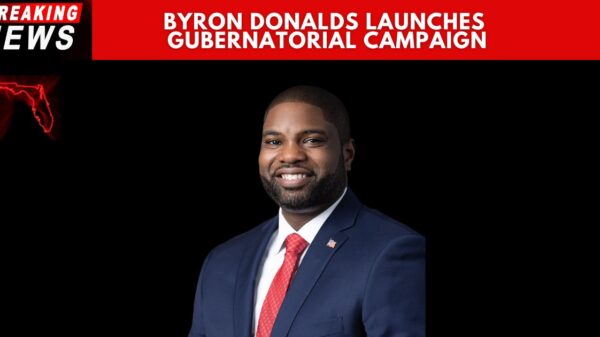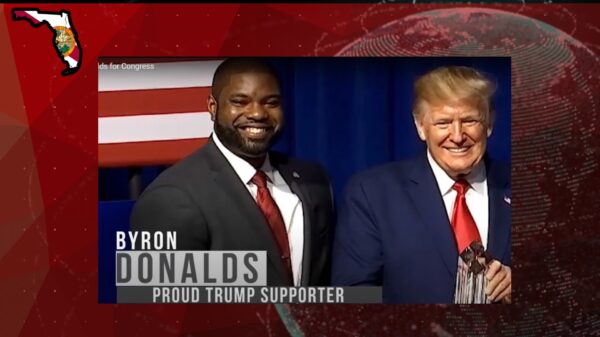Last week, U.S. Rep. Byron Donalds, R-Fla., brought back the “Short Line Railroad Relief Act.”
The bill “authorizes the establishment of a disaster relief program to provide much-needed immediate financial assistance to our nation’s short line railroads.”
“Just months ago, Hurricane Ian made landfall in Southwest Florida, causing historic devastation in our community,” said Donalds. “Among one of the hardest hit entities in Southwest Florida was the Seminole Gulf Railway–which incurred catastrophic damage. When a storm of this magnitude hits any area of our nation, it is the federal government’s responsibility to make available the necessary resources to rebuild and restore vital components of a community. As Hurricane Season 2023 begins, it is imperative that we establish a means in which America’s short line railroads can receive critical relief in the event of natural disasters.”
The bill has 10 co-sponsors, all on the Republican side of the aisle, including U.S. Rep. Troy Nehls, R-Texas, who leads the U.S. House Railroads, Pipelines, and Hazardous Materials Subcommittee.
“Short line railroads are responsible for transporting a variety of goods across the country, and without support from Congress, many are forced to close shop after a natural disaster because of inadequate federal relief,” said Nehls. “These small businesses must receive the support they need to stay afloat and keep our country moving after a natural disaster. I am proud to join my colleague, Congressman Byron Donalds, to provide much-needed relief for our nation’s short line railroads.”
The bill also has the support of the American Short Line and Regional Railroad Association.
Donalds’ office offered some of the reasons behind the proposal.
“The United States is home to more than 600 small business, short line freight railroads, that play a vital role in transporting materials from various economic sectors including: industrial manufacturing, agriculture, energy, chemicals, minerals, metals, timber, etc. Only a handful of short line railroads are government-owned, none are publicly traded and most short line railroads are private, small businesses,” the congressman’s office noted. “Without short line railroads, freight would generally be diverted to highways—which could cost shippers up to four to six times more per shipment, or production would shift to other areas/industries. Any short line railroad closure would, over the course of one year, add thousands of additional semi-trucks on our nation’s roads and highways.
“Currently, federal programs fail to provide short line railroads with immediate financial relief after natural disasters. Commercial insurance for short lines is also often unavailable, doesn’t provide adequate coverage following a natural disaster, or is unaffordable at a viable rate for small businesses. Short line railroads are generally one natural disaster away from being forced to close shop, which would ultimately result in gaping holes and negative impacts throughout our country’s volatile supply chain,” Donalds’ office added. “The Short Line Railroad Relief Act…addresses this urgent concern by authorizing the establishment of a disaster relief program for American short line railroads. The program will be headed by the Secretary of Transportation in consultation with the Federal Railroad Administrator.”
The bill was sent to the U.S. House Transportation and Infrastructure Committee which referred it to the Railroads, Pipelines, and Hazardous Materials Subcommittee. So far, there is no companion measure over in the U.S. Senate.


















